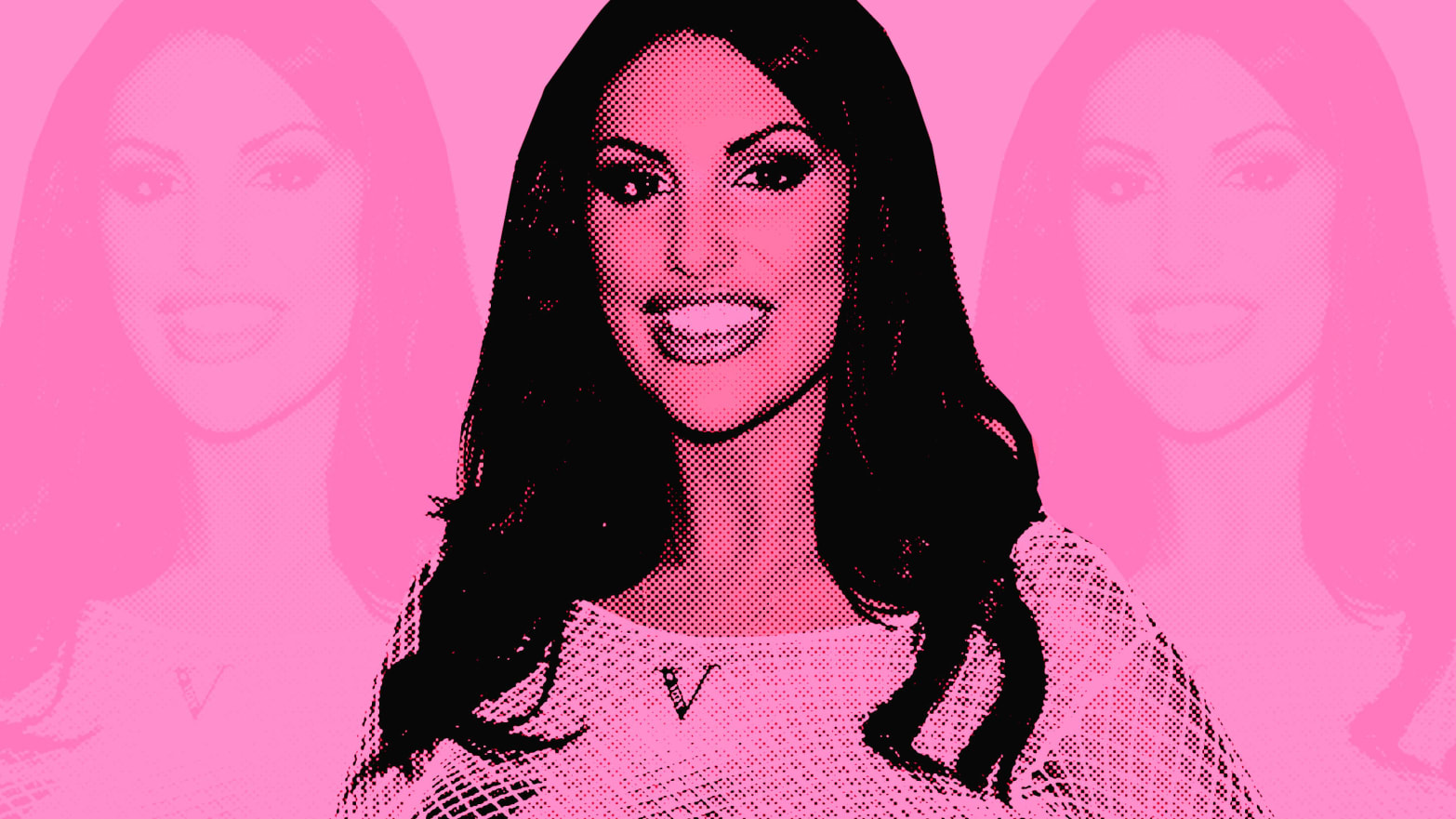“Fuck y’all.” Those were the last words August Ames ever posted to Twitter, on Dec. 4, 2017. The next day her body was found hanging from a tree. A coroner ruled her death a suicide.
Only 23 years old, Ames was a rising star in the adult film world, and her shocking and abrupt departure fueled talk of murder, dividing an already-fractured industry even further. Her husband, adult film director Kevin Moore, claimed she was cyberbullied to death, while others blamed Moore, hinting at a darker, more disturbing relationship than the one he claims to have had with Ames. As time passed, the constant roar of rumors turned to an occasional whisper, the pain not so much lessened as buried.
Old wounds will soon be torn open when Audible’s docuseries podcast The Last Days of August is released on Jan. 4, 2019, one month past the first anniversary of her death.
Attracted to the story’s social media and cyberbullying themes, journalists Jon Ronson and Lina Misitzis investigate the world of Ames through a series of interviews with family, friends, and assorted characters in the adult industry (some of whom wished to remain anonymous). This marks the duo’s second collaborative focus on the porn industry, following the release of their acclaimed podcast The Butterfly Effect.
Ronson and Misitzis make some startling observations about Ames’ demise, all while glossing over Ames’ previous suicide attempts. The pair highlight a particular event—a supposed triggering incident, if you will—and the involvement of a shady individual, hoping to bring some much-needed clarity to a shocking event that began with allegations of cyberbullying.
On Dec. 3, Ames tweeted that she’d declined to shoot a scene because she preferred not to work with “a guy who has shot gay porn.” Ames went on to say, “I do my homework for my body.”
The backlash was swift—and fierce. Ames, born Mercedes Grabowski, was branded a homophobe, and received a series of death threats from those inside and out of the adult industry. One of the adult performers who criticized Ames’ stance was porn legend Jessica Drake.
Following Ames’ suicide, Moore wrote up a blog post leveling a series of accusations at those he felt pushed his late wife over the edge on social media, directing much of his ire at Drake. “Ms. Drake caused irreparable harm by using her followers and stature in an attempt to silence and bully a young, impressionable woman. The deleted tweets show that she knew exactly who Mercedes was.”
Moore links to an alleged screenshot of Drake’s twitter feed from December 4, the last day of Ames’ life, in which Drake is shown to tag Ames in several tweets, one of which states “do your research.” (Drake has maintained her innocence.)
Ames’ death exposed an ugly side of human behavior—both within the adult industry and outside it. There were lingering questions, like how could such a renowned star in Drake, a woman who does charity work and with no apparent history of cyberbullying, suddenly be branded a villain? It was the kind of mystery a curious journalist (or journalists) would find difficult to resist. Given their familiarity with adult-industry folks from their work on The Butterfly Effect, Ronson and Misitzis were more than prepared to roll up their sleeves and sort through the dirt. Before its Jan. 4 release, the two granted an interview to The Daily Beast under the condition that we not reveal their findings before they do.
“Every time we tear someone apart on Twitter, we are willfully ignorant of the context. We don’t want to think about what else is going on in that person’s life,” says Ronson, author of the acclaimed book So You’ve Been Publicly Shamed. “Real courts have sentencing hearings for a reason, and Twitter has eliminated that justice process.”
Misitzis concurs, adding, “The social-media bullying, it’s not just easy, it’s very common for the first story told about a tragedy to be the one that sticks.”
There is a strong sense of responsibility, Ronson says, but also a desire to be accepted. What people in the adult industry think about how he’s handled this story matters dearly to him, and he hopes it’s well received. “It’s not about blaming people, its about trying to understand what happened. We are more interested in understanding rather than blaming,” says Ronson. “That became our responsibility in 2018: how to tell this story truthfully, honoring August, but at the same time do it ethically with a clear conscience.”
Some may question how two outsiders, no matter how credentialed, can really know what it feels like to be on set, to experience the highs and lows of porn culture. From Misitzis’ perspective, she’s hardly an outsider: “I’m a millennial. I’ve had access to porn since I was 9 and I’ve been on more than a hundred sets. I’m confident in my knowledge with what scenes look like and the great variance there.”
At the end of the day, it’s still show business and determining when actors are truly in or out of the characters they play may be trickier than it seems.

